New Year’s Traditions From Around The World
Ringing in the New Year often involves celebrations, parties, and tradition. Maybe your family always cooks the same meal to end the year, or maybe you have a friend that always throws the best New Year's bash. In America, it's tradition to have a New Year's kiss and countdown from ten, but what about everywhere else in the world?
Each country around the globe has a different way of making sure the new year brings health, prosperity, happiness, and luck. There are even certain clothes and foods people eat on December 31. Read on and learn about the different traditions for New Year's Eve, and who knows, maybe you'll find one you want to adopt this year.
Get Spooky In The Cemetary In Chile

If you can't sit through a horror film then don't even think about visiting Chile for New Year's Eve. In one small town, Tulca, it is tradition to spend the last night of the year at a sleepover in the local cemetery.
The locals believe that their dead relatives come back to the graveyard to celebrate the end of the year. The townspeople will make fires, bring meals, and decorate the graves for an extra spooky celebration.
Don't Forget About The Cows In Belgium
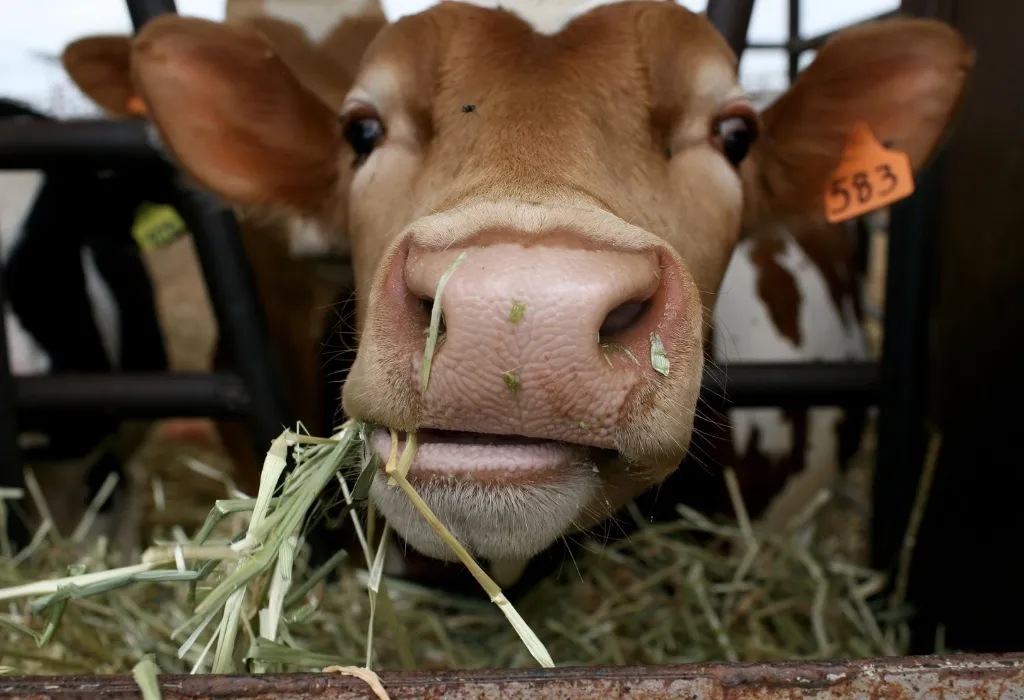
In most countries, New Year's is about partying all night and sleeping until noon the next day. In Belgium though, farmers make sure to wake up nice and early on New Year's Day. They fight the hangover and head out to their stables to wish their cows a happy new year.
The farmers believe that by sharing their good wishes it will bring them good luck with their crop in the upcoming year.
It's A Friendship Contest In Denmark
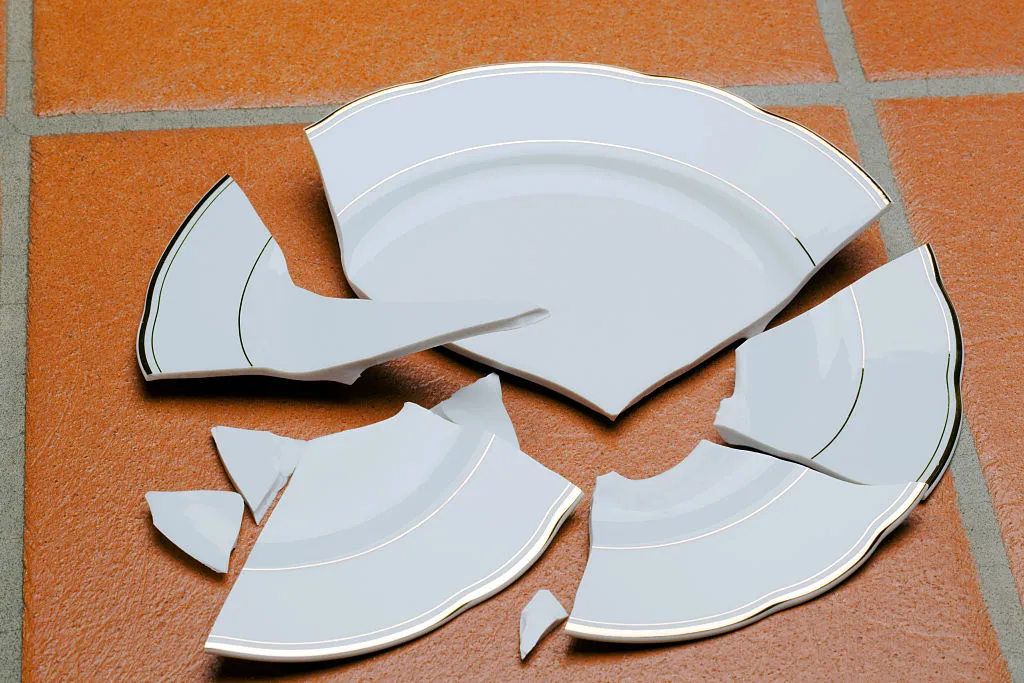
Danish residents will save up their old cracked and broken dishes all year for one New Year's Eve tradition. As a sign of friendship, people walk around the neighborhood on December 31 and break the dishes on their friend's doorsteps.
People allow the dishes to pile up so they can show off how many friends they have. If you're anti-social, Denmark might not be the place for you on New Year's.
The Southern United States Have A Specific New Year's Eve Dinner
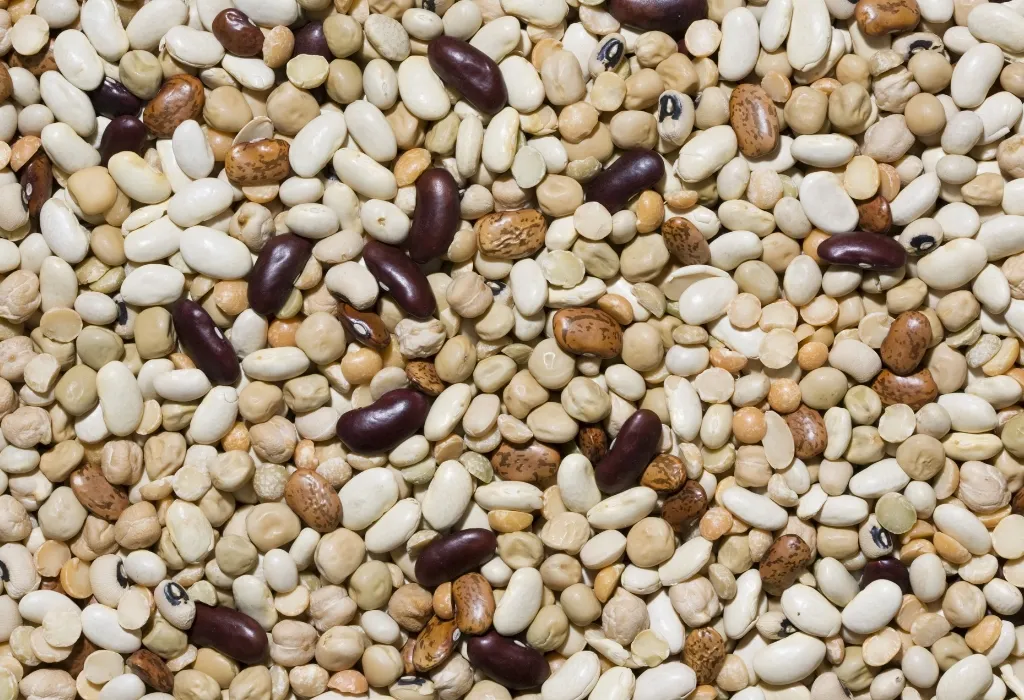
While tradition for New Year's Eve dinner varies from state to state, the Southern states nearly all share the tradition of eating a black-eyed pea stew. The peas are said to represent coins and therefore bring prosperity in the new year.
The tradition actually comes from the Jewish tradition of eating black-eyes peas in celebration of Rosh Hashanah. It spread to the south during the Civil War when black-eyes peas helped Southern soldiers survive the cold winter and make it to the new year.
Estonians Know How To Eat
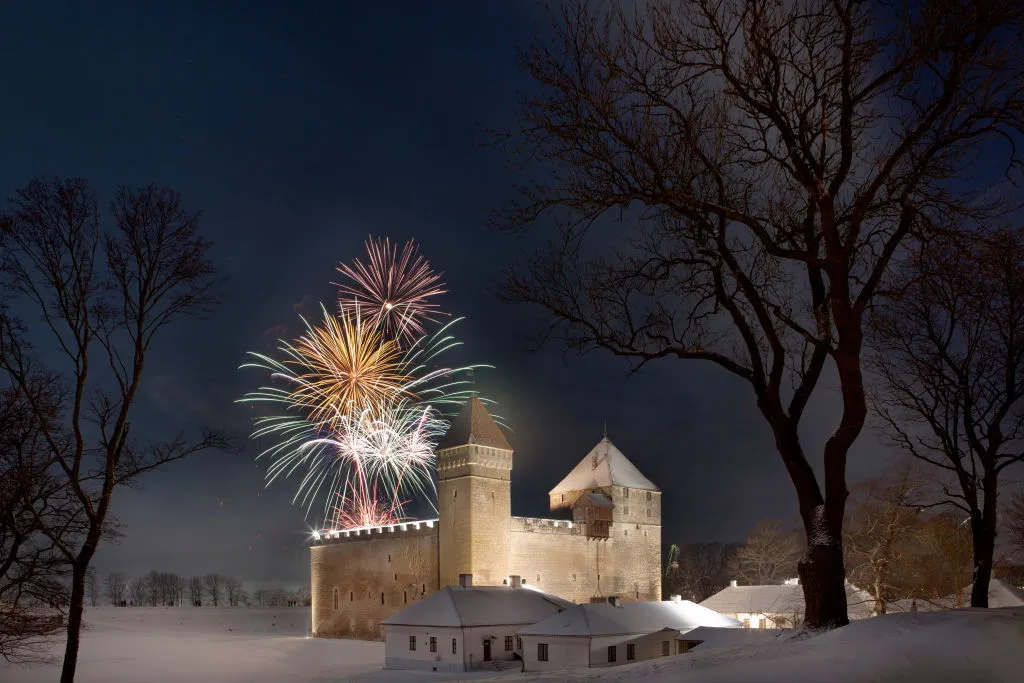
The most impressive part about an Estonian New Year's celebration is that they even make it to midnight. Estonia tradition dictates that you eat as many meals as possible, and it has to be a lucky number. That means either seven, nine, or twelve courses is standard.
Families will opt for the highest number if possible because tradition says that the more meals you have, then that's how much strength you'll have in the new year.
Japan Keeps It Clean

In Japanese culture, it is traditional to cleanse the household of the past year so you can be ready to welcome what comes in the New Year. The entire family will take part in Oshogatsu by both cleaning and decorating the house.
The decorations aren't flashy lights or streamers though. Instead, the household is decorated with natural elements like pine branches, plum blossoms, and bamboo. This decor definitely spruces up the New Year's celebration.
South Africa Takes Cleaning House To A New Level
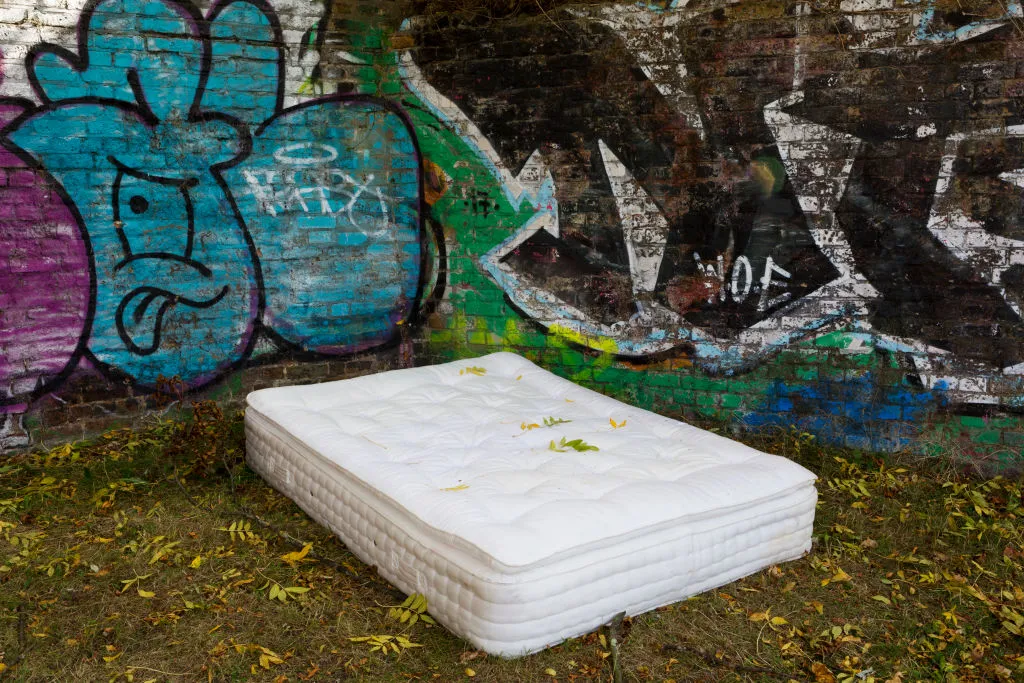
If you thought Japan liked to cleanse their house, take a trip to South Africa. Particularly in neighborhoods like Johannesburg and Hillbrow, South Africans will clean by throwing perfectly fine things out the window. We're not talking plates or bags of garbage, we're talking about old refrigerators and couches!
It's a great thing to witness if you need new furniture, but in some neighborhoods, it's become a serious health hazard.
Have The Right Guest Enter The House In England
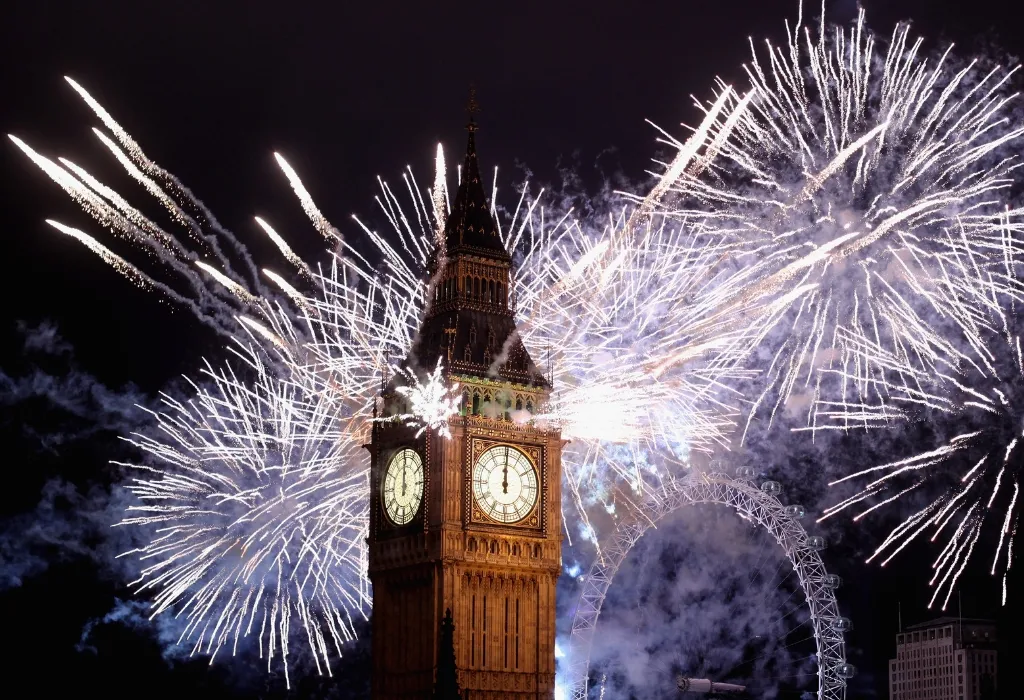
Brits believe in a long tradition that says a certain type of person needs to be the first guest to enter through the front door in the new year. If a dark-headed male walks into the house after the clock strikes midnight, then you're in luck.
It's even better if he brings gifts like bread (to keep you full for the year), salt (to bring you wealth), and coal (to keep you warm).
Hop In For A Polar Bear Plunge In Canada

This tradition doesn't actually involve swimming with polar bears. Rather, it involves people jumping into the freezing cold waters of Canada on New Year's Day.
The tradition began in 1920 in Vancouver, British Columbia, as a way to ring in the new year and since then has spread across the country. The Polar Bear Plunge is also now done around the world, often as a way to raise money for charitable organizations.
Pull Out Your Best Underwear In Turkey
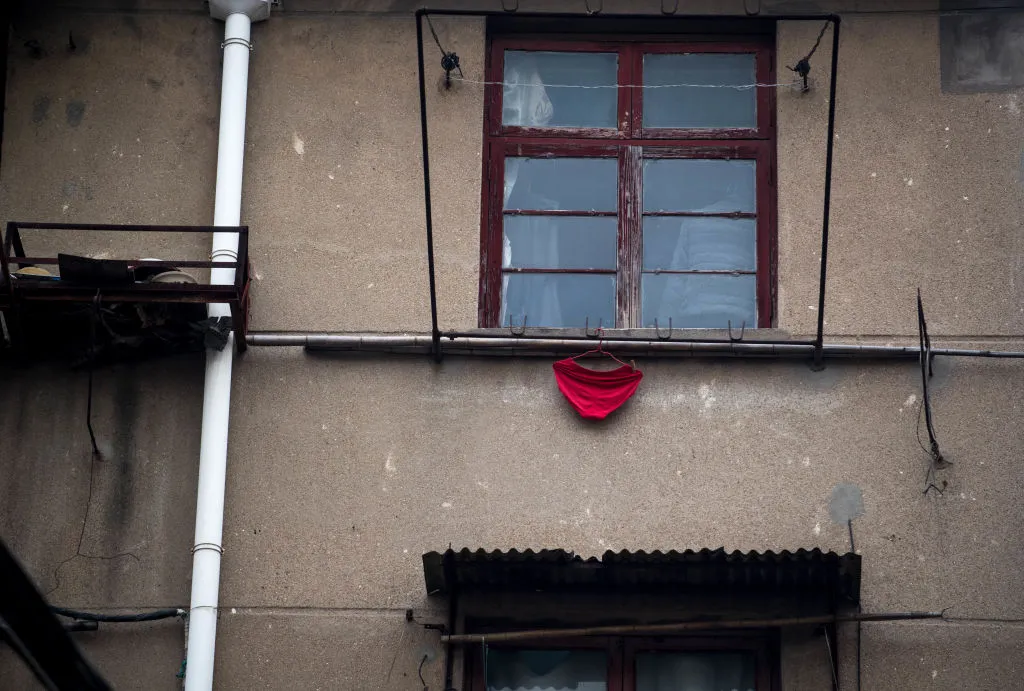
It's common for the people of Turkey to have one single pair of red underwear that they wait all year to wear. Apparently, if you're wearing the right color underwear on New Year's Eve, it can bring you luck in the new year.
This same tradition is observed in other countries too like Italy, Spain, and Mexico. There, red underwear means you'll find love, yellow underwear means you'll find wealth, and white underwear signifies peace.
Visit Panama To See Scarecrows Explode
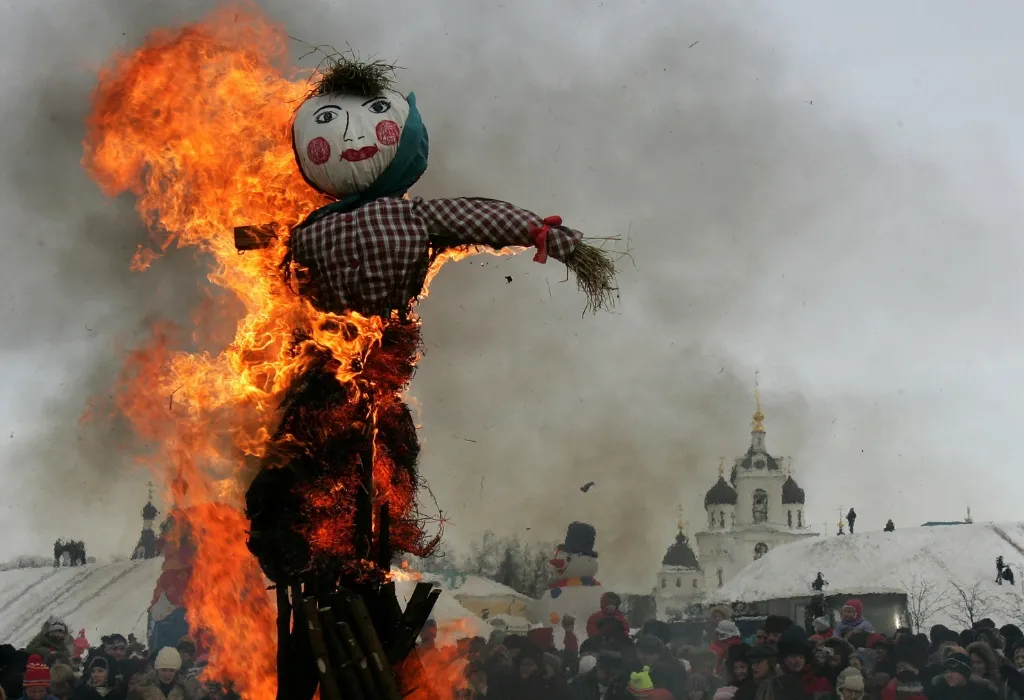
Both Panama and Ecuador have similar New Year's Eve traditions where people construct large scarecrows of effigies of people they don't like and then destroy them. In Panama, the scarecrows simply get lit on fire, but Panama likes to stuff the scarecrows with fireworks and set them off.
By burning or exploding the scarecrows, it's supposed to symbolize leaving the bad things from the past year behind. It's also a pretty intimidating way to tell someone you don't like them. Just imagine walking around Panama and seeing a scarecrow that looks like you exploding.
Get Ready To Rumble In Peru
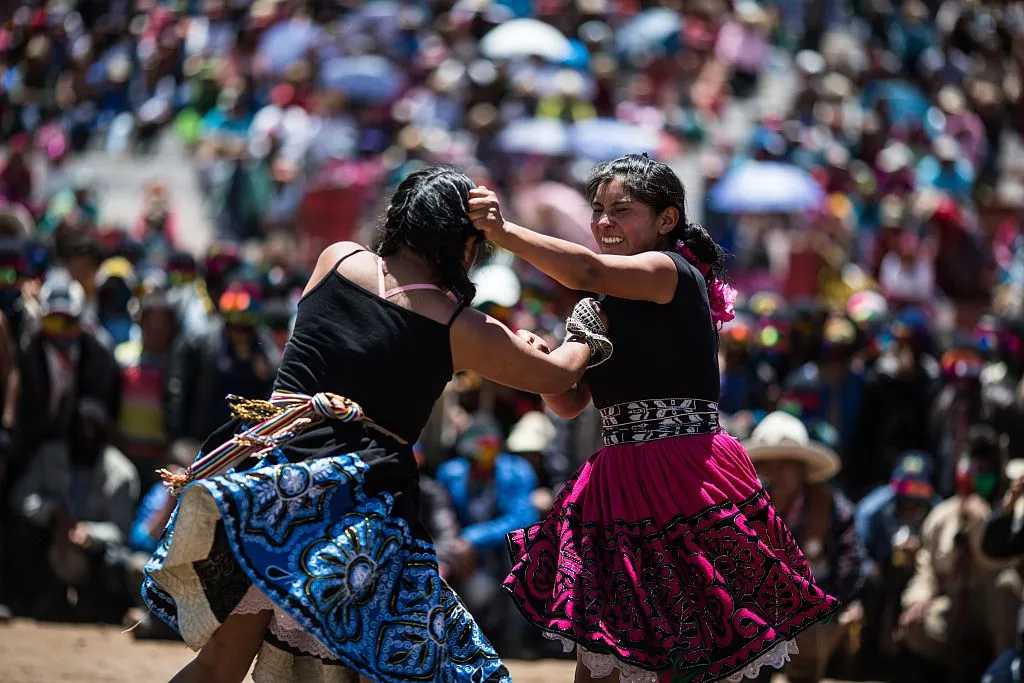
One small Peruvian village is essentially the first village to do The Purge, minus the killing and horrific acts. Every year on the last day of December, the people in a small Peruvian village get together at the Takanakuy Festival and settle their disagreements with fist fights.
You might think it sounds like a disaster, but apparently, it works. The fist fights allow the members of the village to start the new year off with a clean slate and no grudges.
Drag A Suitcase Around Columbia
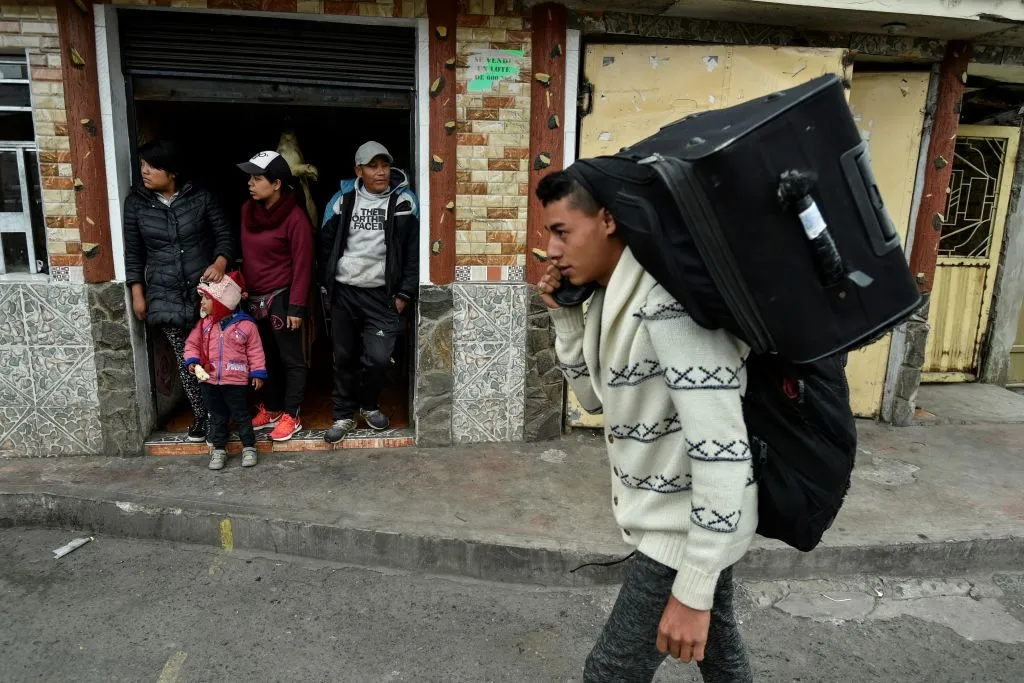
One of the fan favorite ways for Columbians to ring in the new year is to drag an empty suitcase around the block. Tradition states that by doing so, you will bring a year of travel and good fortune.
If you're a tourist visiting Columbia for the first time and don't know how to get to your Air BnB, then you might be partaking in this New Year's tradition without even knowing it!
Belarus Combines Three Holidays Into One
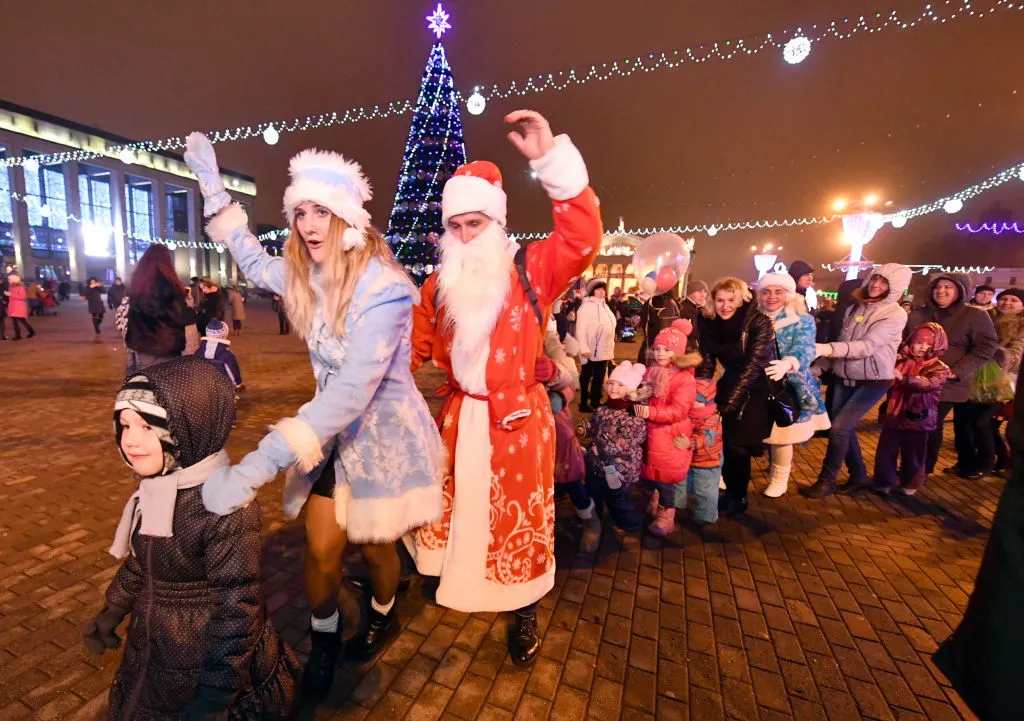
In Belarus, New Year's Eve is part of a 13-day long festival known as Kaliady. The festival began as part of an old pagan recognition of the winter solstice. Even as Orthodox Christianity and other Western traditions began to make their mark, the festival continued to adapt.
Today, Kaliady includes New Year's Eve, Orthodox Christmas, three ritual dinners, door-to-door caroling, and even trick-or-treating. It's almost as if Belarus wanted to combine all the best fall and winter holidays into one.
Out With The Old And In With The Onions In Greece
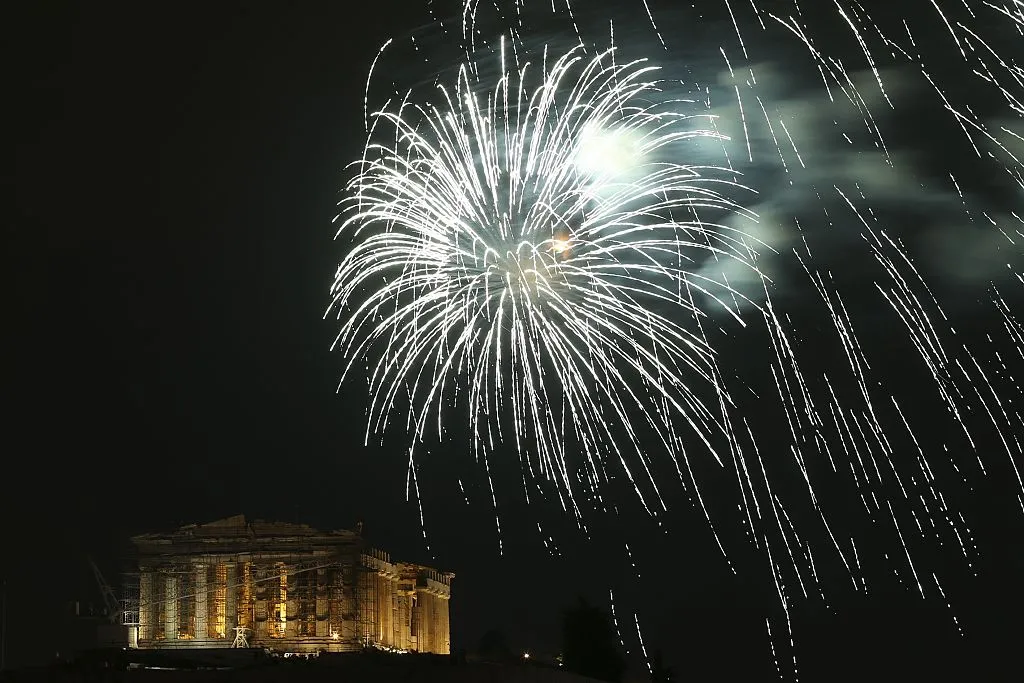
It is tradition to hang an onion from your front door in Greece on New Year's Eve. The onion is seen as a symbol of rebirth for the coming year because of its many layers. Shrek would be so proud.
The tradition continues on New Year's Day. Parents will wake their children in the morning by tapping them on the head with the onion, then it will be used in cooking that day.
The Times Square Ball Has A History
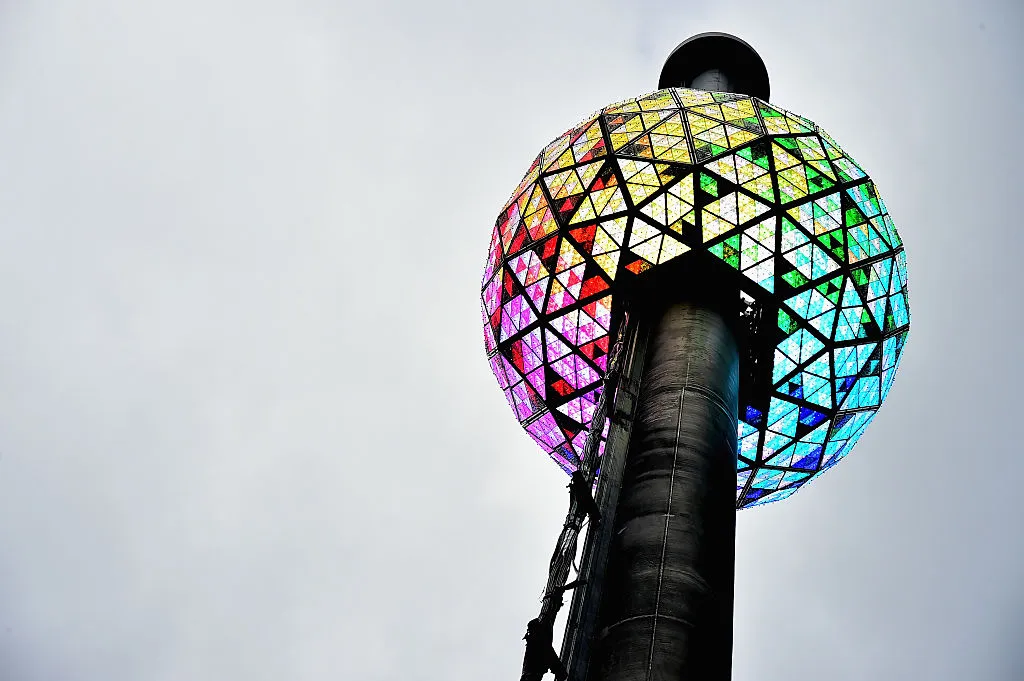
The ball drop in New York City's Times Square attracts thousands every year since 1907. The only time the ball didn't drop was in 1942 and 1943 because of wartime blackouts.
The tradition of time balls come from an old naval tradition. A time ball would descend from a pole at noon and midnight for sailors to precisely set their fancy naval instruments before going out to sea. Today, it's just to precisely time the perfect kiss.
Netherlands Hosts One Of The Biggest Parties
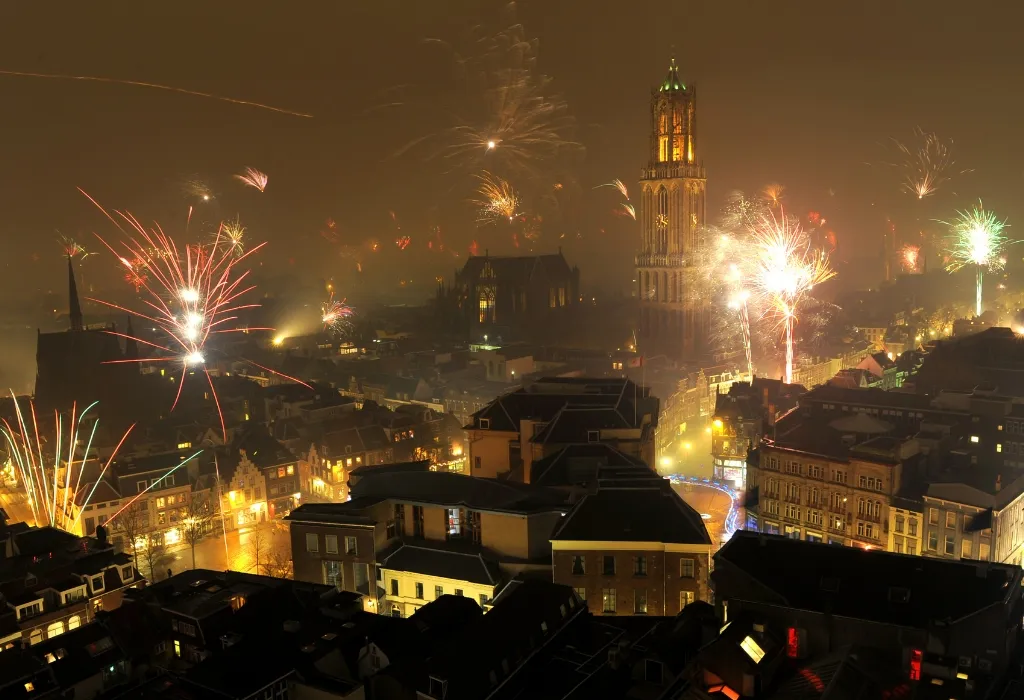
If you thought New York City was a major celebration, try going to the Netherlands. Amsterdam has one of the world's largest street parties. If you go, make sure to buy the oliebollen. The food is technically just deep fried dough balls, but eating them at midnight is said to ward off evil spirits.
If you're not an experienced partier then maybe avoid the city as a whole. The street party includes music, fireworks, and beer tents. Some people have even compared it to a war zone.
Round Is The Rage In The Philippines
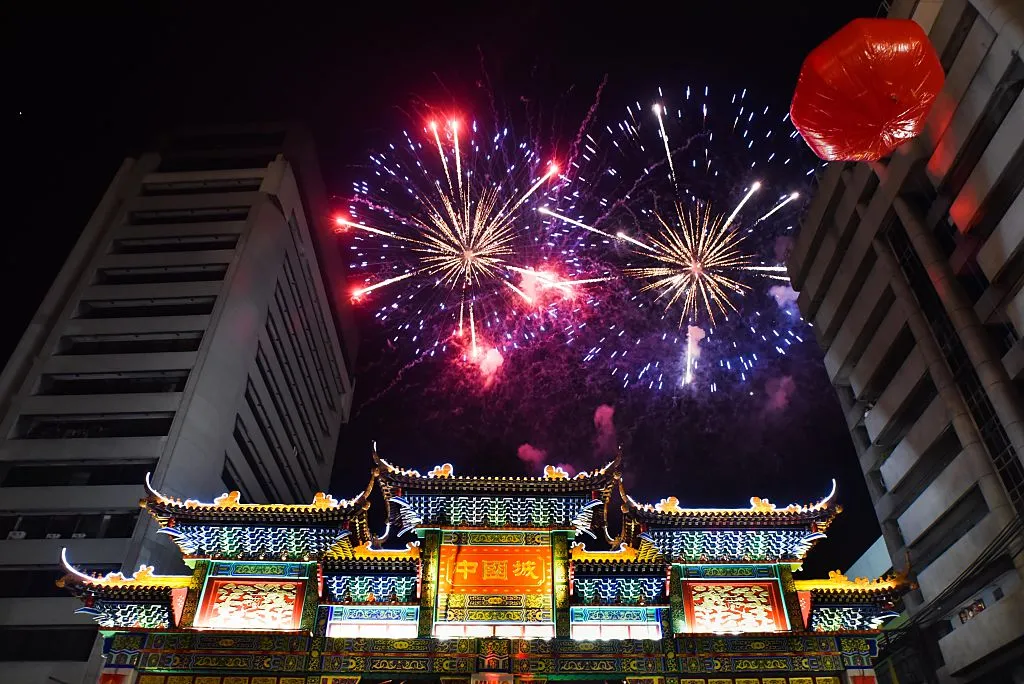
In the Philippines, anything round is in on New Year's Eve. Many people will wear clothing with polka dots or round designs. Most street foods and desserts will also be shaped round for the occasion.
People think that the round shape symbolizes money and if you spend New Year's Eve surrounding yourselves with circles then you'll have better finances in the new year. People will even stuff their pockets with coins for luck.
Search Through A Pig For A Good Luck Charm When You're In Austria
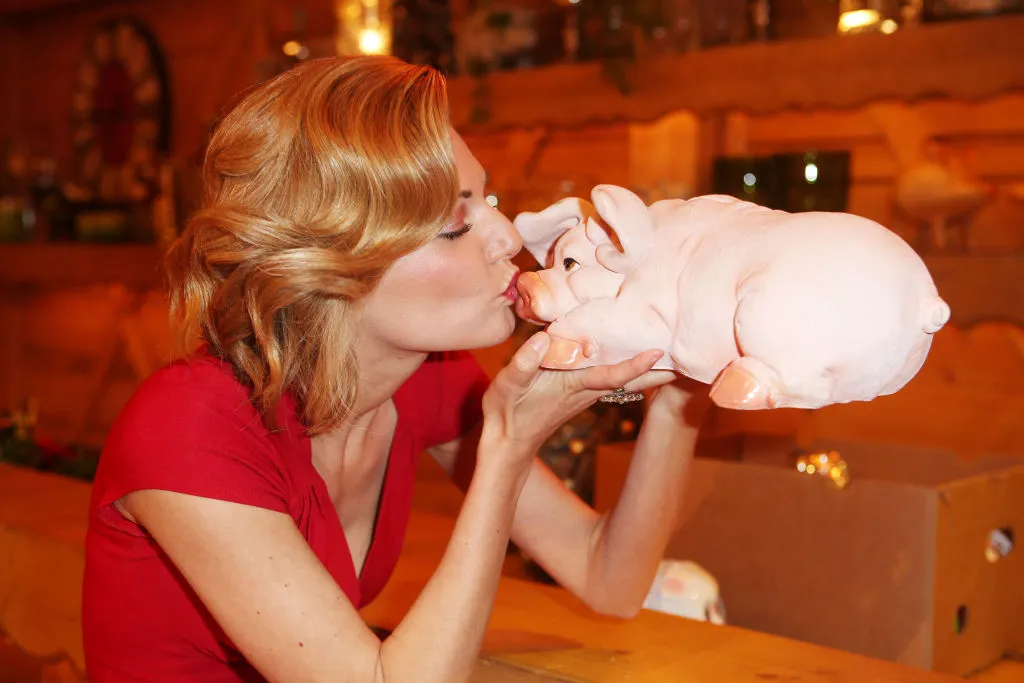
In Austria, New Year's Eve is actually called Sylvesterabend, which means the Eve of Saint Sylvester. During the evening, Austrian's fire mortars to chase out evil spirits then prepare for the New Year's Day feast.
The star of the feast is a suckling pig that symbolizes good luck. Little miniature pigs made of marzipan or chocolate also are used as decoration all around the table. Basically, vegans should beware of Austria on New Year's Eve.
If You're In Brazil, Make Sure To Stock Up On Raisins

Lentils are all the rage in New Year's celebrations across all parts of Brazil. It is common to find lentils in celebratory soups or main courses because Brazilians think it will bring them wealth in the New Year.
That food-related tradition isn't enough though. Brazilians finish off the night by eating seven grapes or raisins. They won't throw out the seeds though, and instead, keep them in their wallet as another symbol of wealth.
France Only Eats Their Best Food On New Year's Eve
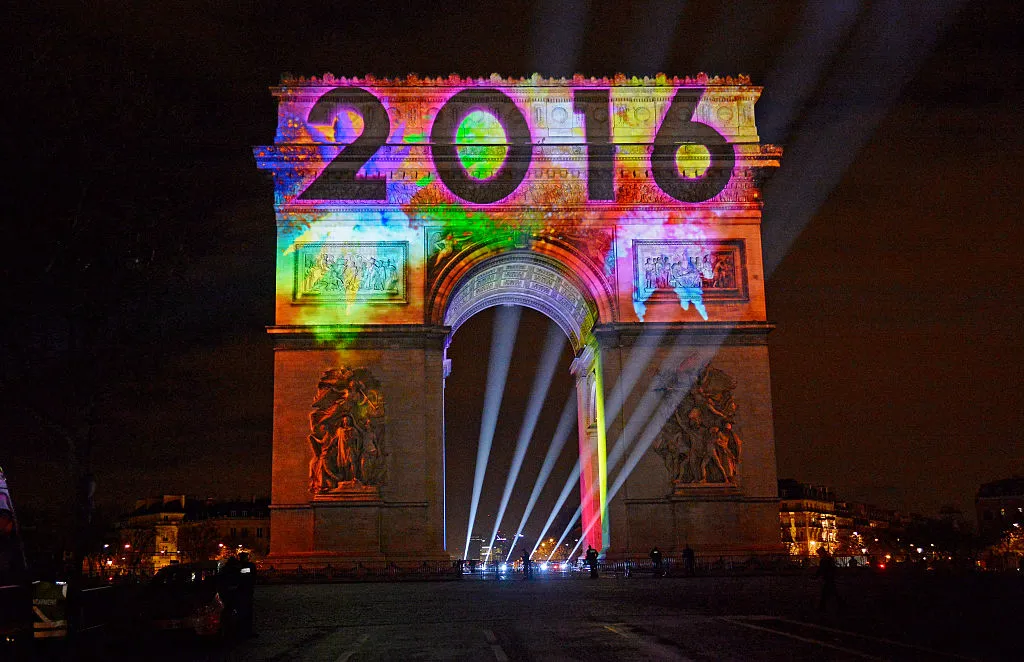
Rather than eating food that signifies future wealth and prosperity, French people will eat up all their year-end wealth. Obviously, it depends on what you can afford, but French people will shell out the extra dollars for the best food. Foie Gros, goose, oysters, and of course, champagne, are all common at a New Year's Eve feast.
The top-of-the-line fair is meant to signify an equally prosperous year. Hopefully, you don't spend your year's savings on the feast though!
Switzerland Celebrates A Few Days Later
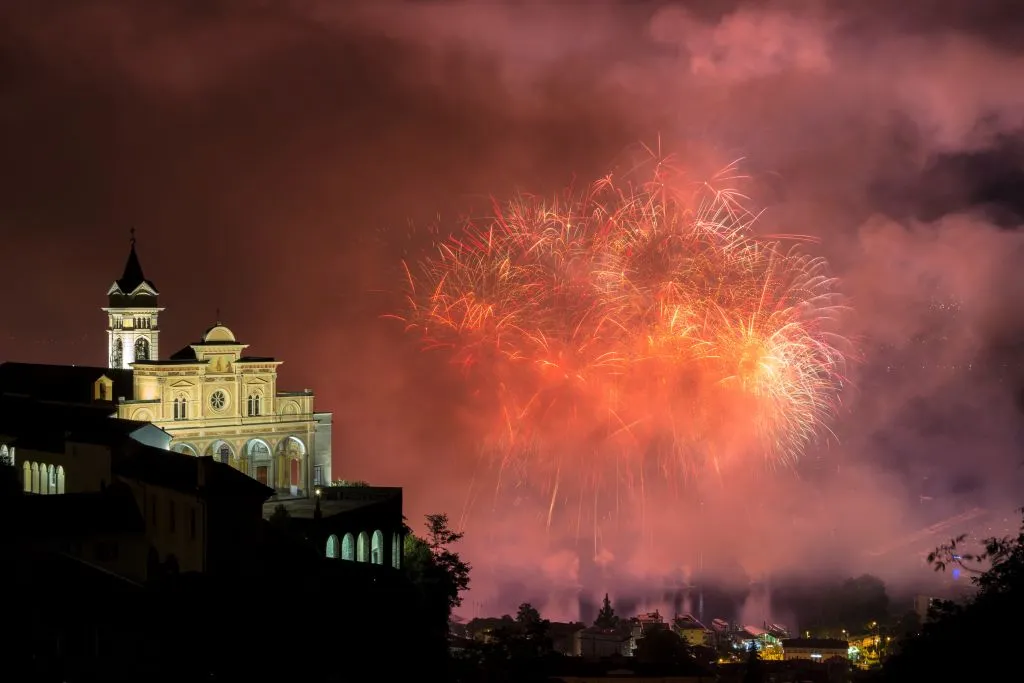
Switzerland is one of the few European countries that still celebrates two different New Year's. The country will celebrate on December 31 with the rest of the world, and again on January 13 according to the old Julian calendar.
On their New Year's Day (January 14) the Swiss will let a drop of cream land on the floor. That simple tradition is said to bring a year of "overflowing abundance."
Russia Throws It Back To Soviet-Era Traditions
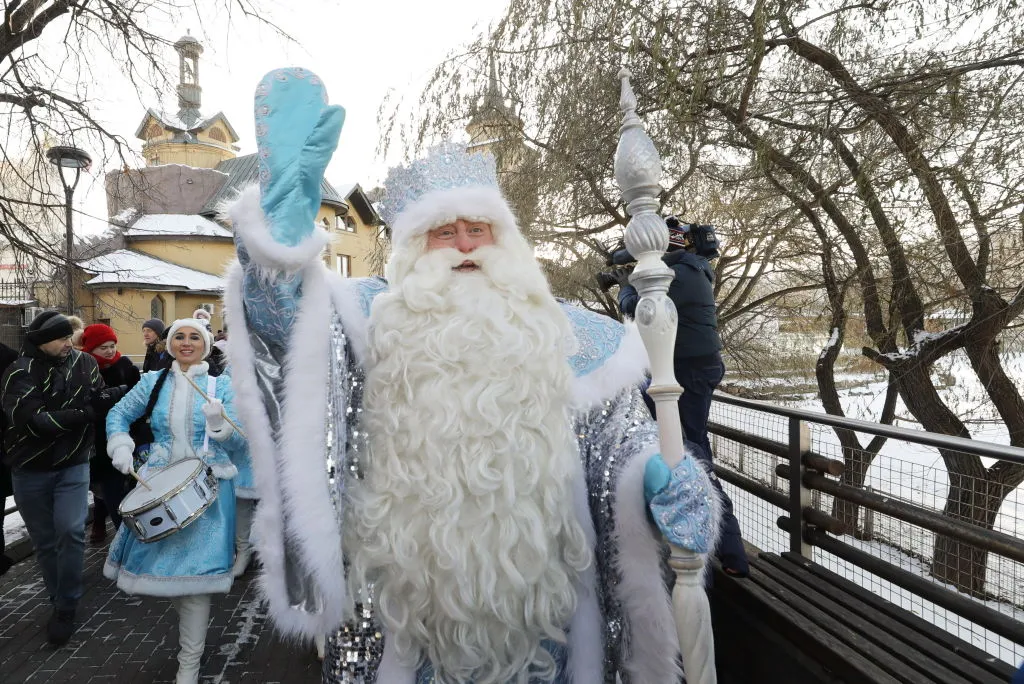
During the Soviet period, religion was banned or heavily regulated. That means for more than 70 years, Christmas was not celebrated. As a way around the rules, Grandfather Frost would visit at midnight on New Year's Eve to leave presents for the kids, essentially taking the place of Christmas.
The tradition still holds true today except for with Russia's Orthodox Christian population, who wait until early January to celebrate Christmas with the Julian calendar.
Finnish People Look For Symbols In The Water

One New Year's Eve tradition for the people of Finland is to drop molten tin into ice cold water and see how the tin forms and cools. If the tin forms to look close to a heart then you might find love in the new year.
If it possibly forms into the shape of a plane, train, or car then maybe you'll spend the next year traveling. It's kind of like reading tea leaves from Harry Potter.
Scotland Holds The Hogmanay Festival
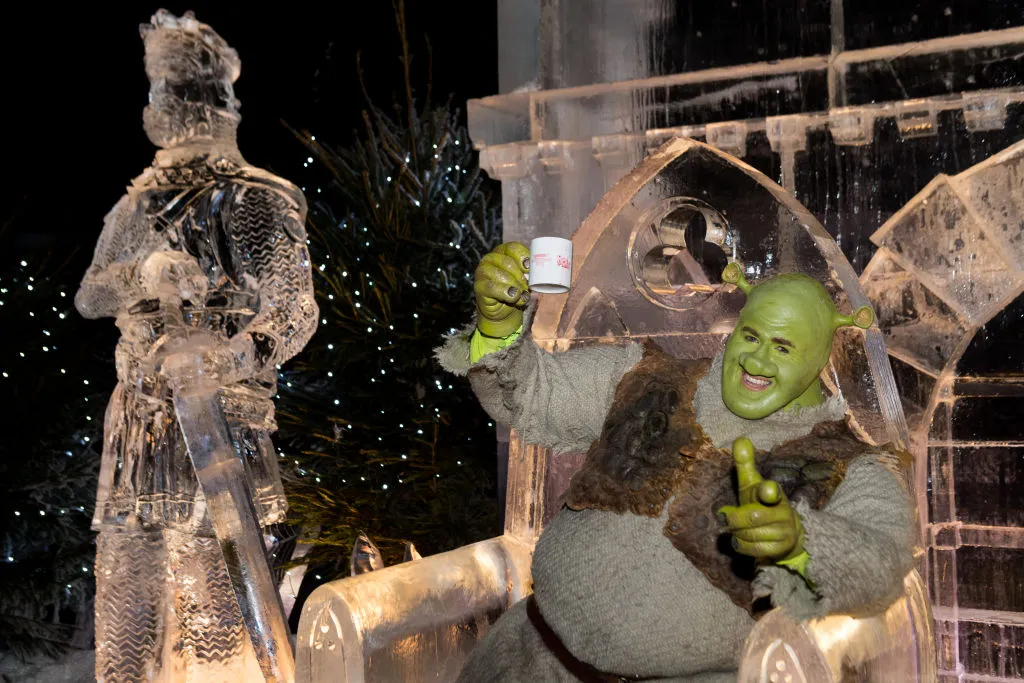
The Church of Scotland outlawed Christmas for nearly four centuries. It was only until 1958 that Scots were able to celebrate the holiday again. To make up for losing Christmas, the Scottish created the New Year Festival of Hogmanay, which takes place on the last day of the year.
They even get January 1st and 2nd off to nurse their hangover. Even though Christmas is back, the Hogmanay festival still overshadows it.
Dust Off Your Bear Costume In Romania
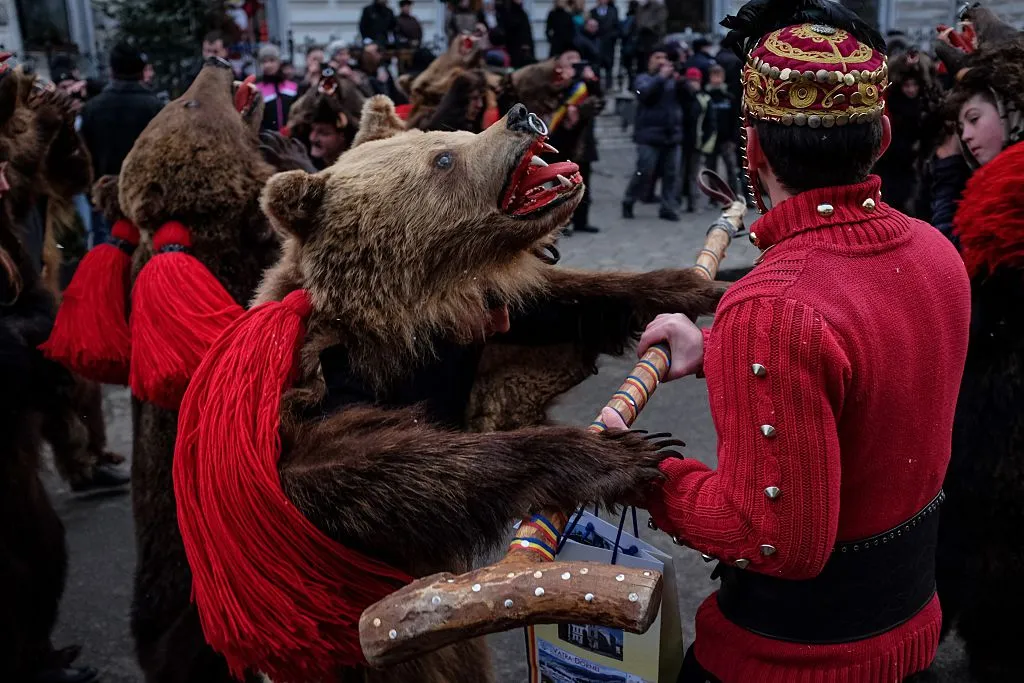
People in one small Romanian town still perform a pre-Christian ritual that involves dressing up as a big brown bear and dancing in the streets. The job is usually left to the largest men in town because they are the most intimidating. It is believed that dancing, playing instruments, and singing in the costume will ward off evil.
Nowadays, the dancers can be found in the street and going house-to-house to ward off individual evil spirits as well.
Leap Into The New Year In Denmark
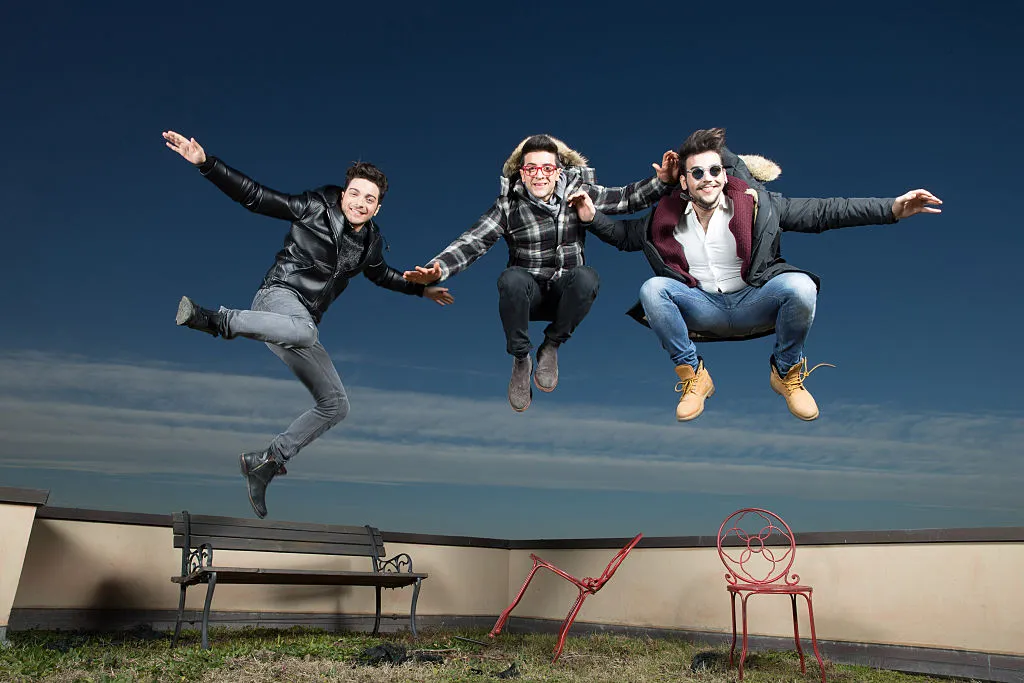
Another Danish tradition is for everyone in the room to stand up on a chair in the minute leading up to midnight and jump in unison when the clock strikes twelve. It's believed that this tradition symbolized leaping forward into the new year and leaving the bad things behind.
It sounds like fun but it could also get pretty dangerous if everyone in the pub or house party has had a lot to drink.
Take Part In Japan's Buddhist Ritual On New Year's Eve
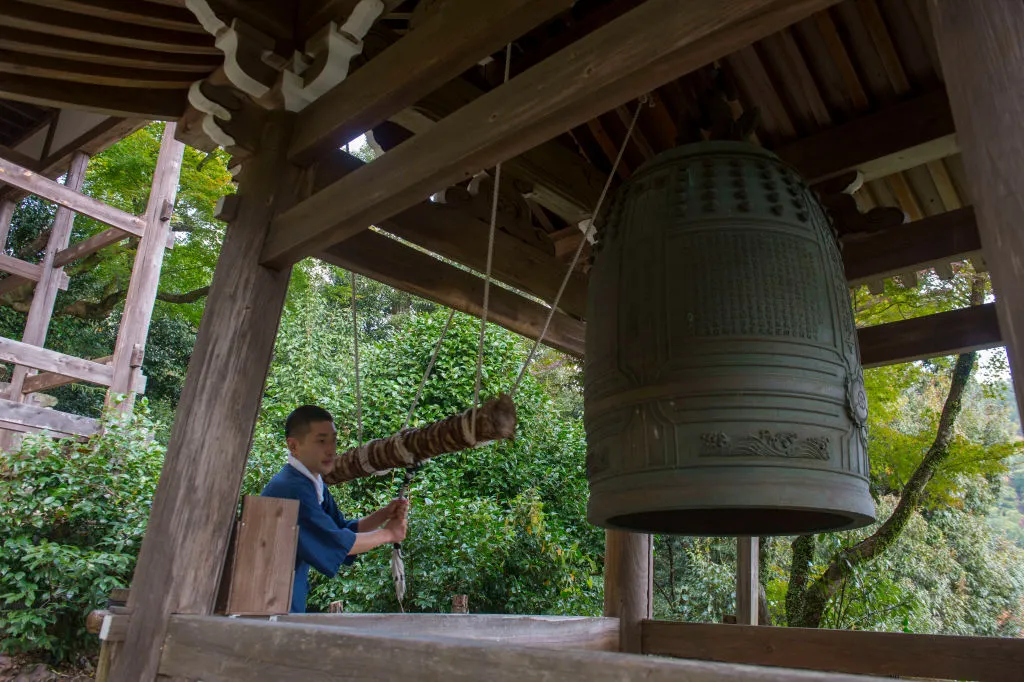
While the cultural tradition of cleaning house might be common across Japan, they also have a Buddhist ritual they take part in. Joya no Kane is a longstanding tradition that involves ringing a bell exactly 108 times.
In Japanese Buddhism, it is believed that humans are entrapped by 108 desires and ringing a bell on New Year's Eye is a way to purify and reduce those desires. Be careful though, you don't want to lose count halfway through.
Find The Gold Coin In Bolivia
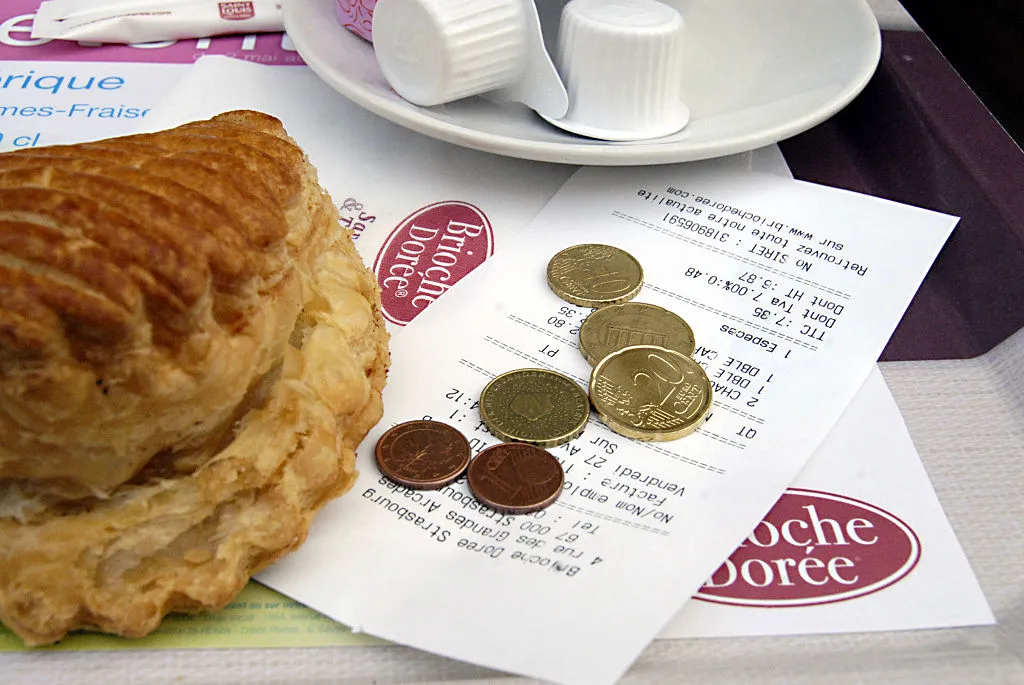
One tradition that is commonplace in Bolivia and the surrounding countries is to bake a single gold coin in the New Year's Eve feast. The coin is placed into the sweets and whoever finds it has good luck for the next year.
Of course, the only problem is making sure you find the coin before you accidentally eat it. We're not sure choking to death on a coin would bring good luck.
Paint The Door, Not The Town, Red In China
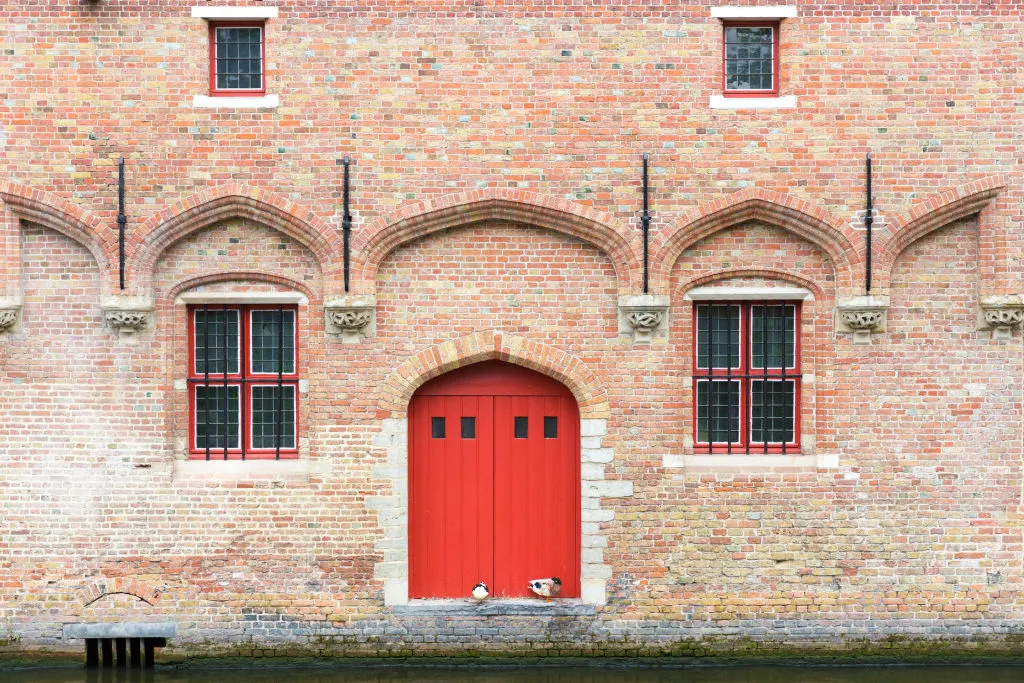
The color red symbolizes good luck in China, so many will use New Year's Eve to paint their front door the lucky color. Chinese people believe this means happiness and good fortune will come next year because no evil spirits can entire the premise.
Many Chinese people will also hide their knives so that nobody cuts themselves accidentally. They believe if one person cuts themselves it can impact the good fortune of the entire family.









